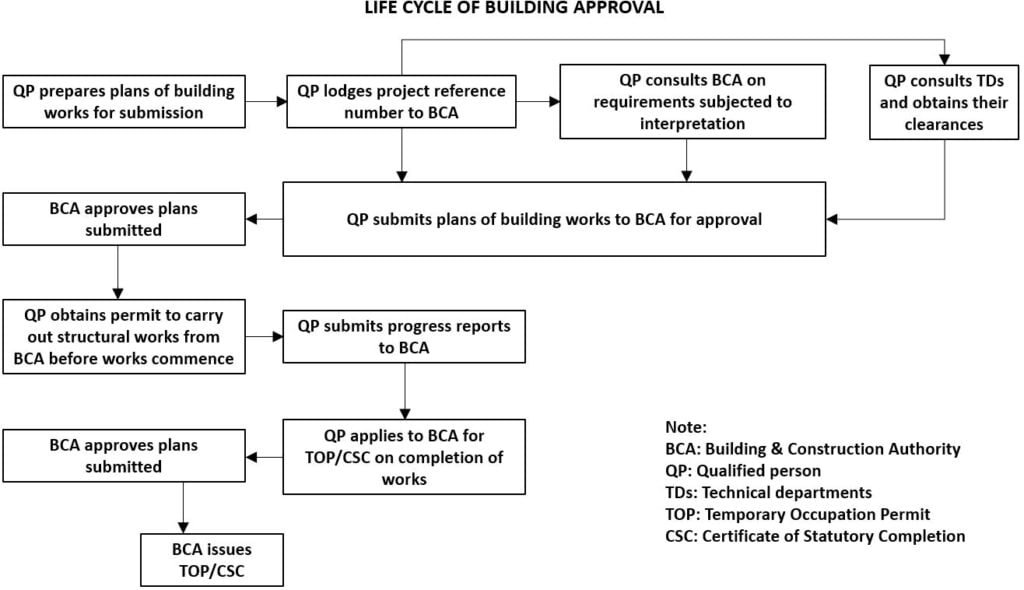Singapore’s construction industry is governed by strict regulations that ensure safety, quality, and sustainability in all building projects. These regulations apply to various areas, including Singapore Construction Regulations, environmental guidelines, worker safety, and building standards. Whether you’re a construction firm or a property developer, understanding these rules is crucial to ensure your projects are compliant and successful. We have prepared a list of construction regulations you need to know below.
Building Codes and Standards
The City of Lion enforces strict Singapore Construction Regulations to ensure all construction projects are safe and sustainable. The Building Control Act sets clear standards for materials, structural stability, fire resistance, and accessibility. Builders must adhere to these guidelines from the initial design to the completion stage.
Failure to meet these codes can result in heavy fines, project delays, or even demolition. For example, all buildings must be designed to withstand the environmental conditions in Singapore, such as high humidity and heavy rainfall. Compliance ensures both the safety of the public and the long-term durability of the buildings.
Construction Permits
Before starting any construction project in Singapore, a valid permit is required. The Building and Construction Authority (BCA) oversees the issuance of construction permits. Developers must submit detailed plans that comply with Singapore’s zoning laws, environmental standards, and safety requirements.

The permit process includes several stages:
- Submission of detailed architectural plans
- Approval of engineering assessments
- Verification of safety measures and building materials
This multi-step process ensures that construction projects meet Singapore Construction Regulations high standards for safety and quality. Skipping or bypassing the permit process can lead to legal penalties and forced project stoppages.
Environmental Regulations
Singapore has a strong focus on environmental sustainability in construction. The Environmental Protection and Management Act sets guidelines for waste management, pollution control, and energy efficiency. For example, construction companies must follow guidelines for minimizing air pollution from dust and vehicle emissions during projects.
Additionally, the BCA promotes the Green Mark Scheme, which encourages developers to adopt eco-friendly designs and energy-saving technologies. New buildings must meet specific energy efficiency standards to reduce their environmental footprint. Sustainable construction methods are not only encouraged but required by law in many cases.
Worker Safety in Singapore Construction Regulations
Worker safety is a top priority in Singapore’s construction industry. The Workplace Safety and Health Act (WSHA) requires developers and contractors to implement safety measures to protect workers from potential hazards. Safety guidelines cover areas like scaffolding, machinery operation, and personal protective equipment (PPE).
Regular safety inspections are mandatory, and companies that fail to meet safety requirements face fines or work stoppages. To prevent accidents, all workers must undergo safety training, and construction sites must have proper signage and safety equipment.
Building Inspections and Compliance Checks
During and after construction, the BCA conducts thorough inspections to ensure compliance with Singapore’s building codes. These inspections cover various aspects of the project, including structural integrity, fire safety, and environmental standards. If any issues are identified, the developer must address them before receiving a final occupancy certificate.
Inspections play a critical role in ensuring that buildings are safe for public use. Developers must work closely with inspectors and be prepared to make adjustments to meet the required Singapore Construction Regulations.
In Singapore, strict construction regulations ensure that every building project meets the highest standards of safety, quality, and environmental sustainability. Navigating Singapore Construction Regulations is vital for anyone involved in the building industry. By ensuring compliance with building codes, securing proper permits, prioritizing worker safety, and meeting environmental standards, construction companies can complete projects efficiently and safely. Staying updated on these regulations will help you avoid legal penalties and contribute to Singapore’s vision of a sustainable and safe built environment.

